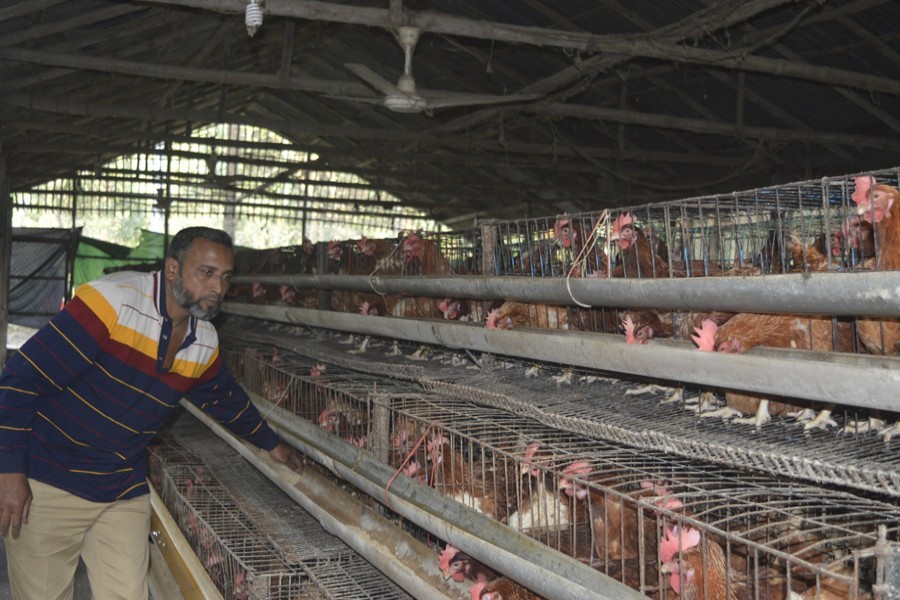Poultry industry association leaders have sought withdrawal of taxes on import of raw materials for feed production as those are affecting the growth of country's largest protein supplying sector.
Local manufacturers and farmers said the higher taxes are not only affecting the medium and large poultry industries but are also forcing some 15-20 per cent small poultry farms to shut their business operations.
Industry insiders said if the taxes are not withdrawn, it will enhance the production cost of the poultry birds, chicks and eggs by nearly 15 per cent.
The local poultry product producers have recently urged the finance minister and the National Board of Revenue (NBR) to withdraw the taxes.
Such taxes (maximum 15 per cent) on the raw materials were imposed two years ago.
The finance minister in the national budget for the financial year (FY) 2018-19 imposed a 10 per cent regulatory duty on the soya-meal import. It also imposed 5.0 per cent advance income taxes (AIT) on the maize import.
Besides, the government also imposed 5.0 per cent AIT on the import of different necessary ingredients for the poultry feeds from the "zero" per cent rate two years ago in FY2015-16.
The feeds include limestone, lysin, fish oil, di-calcium phosphate, methionine, ronozyme, full fat soya, mono-calcium phosphate and choline chloride.
Mashiur Rahman, President of the Bangladesh Poultry Industries Central Council (BPICC) told the FE Saturday some hundreds of small poultry farms have already been closed due to the higher feed price of the poultry chicks and birds.
If the taxes are not withdrawn by the government, the country's poultry sector will be affected severely instead of its expected growth amid the target of extended protein supply by 2021, he said.
According to the poultry industry insiders, maize and soya-meal are the key ingredients for producing poultry feeds.
Among all ingredients, maize is used nearly 50-55 per cent and the soya-meal is nearly 30 per cent for manufacturing the feeds in Bangladesh.
Almost cent percent of the feeds are supplied by the local producers who import the raw materials including maize, soya-meal and other ingredients.
Nearly half of the 2.2 million tones of annual maize demands are supplied by the local farmers while the rest is imported from overseas markets.
Besides, feed millers import 0.80 million tones out of some 1.6 million tonnes of annual demand of soya-meal from overseas market for producing the feed.
Mr Mashiur Rahman, who is also the president of the Feed Industries Association Bangladesh (FIAB) said: "The last two years of the poultry industry faced a real acid test due to the imposition of the taxes. It will enhance the retail price of the eggs, meats and chicks in the future days if it is not withdrawn."
"The government will earn only Tk 2.65 billion from the taxes on maize and soya-meal. But if the government withdraws the taxes, the poultry industry could supply meats and eggs at reasonable prices to the consumers."
Akram Hossain, a poultry farmer in Rajshahi said they are procuring the feeds spending Tk 10 to Tk 12 higher on each of the kilogram from the markets over the last couple of years.
"It is a severe impact on their farming as they have recently recovered from the loss of the bird-flu attacks few years back. If the government withdraws taxes on the raw materials, we are expecting a lower price of the feeds in the market which will help us to survive," he said.


